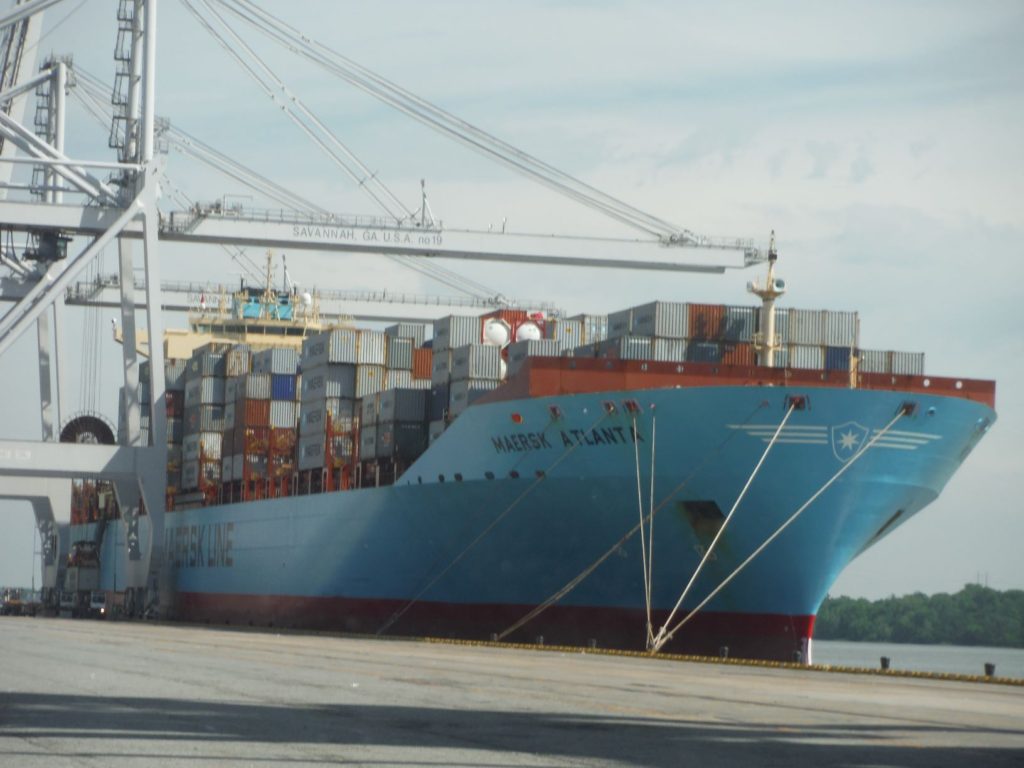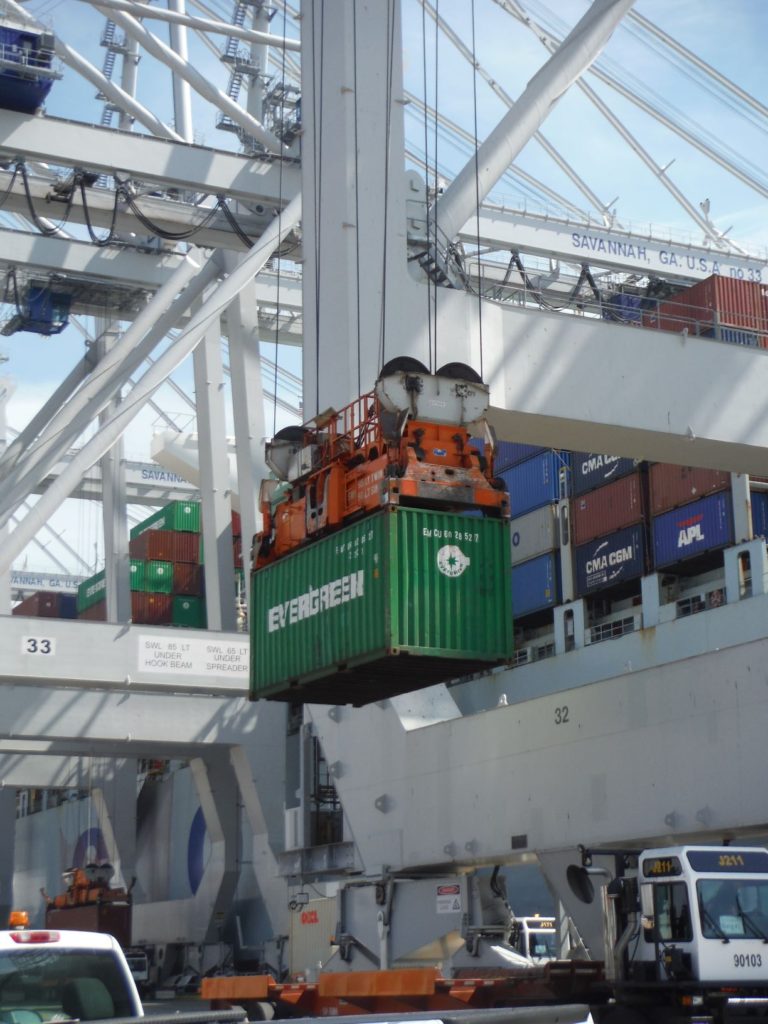
I have blogged for a year about record-breaking volumes of imports reaching our ports from Asia … so now the media & politicians are aware of these issues! Oh, well …
The traffic jam continues … ports are being pressured to expand their hours of operation … I hope DHS Bureau of Customs and Border Protection (CBP) is keeping up & doing its best to detect & penalize shipments in which the wood packaging violates ISPM#15. I hope CBP is not under pressure from inside the Administration to “expedite” inspections.

Remember, Asia is the origin of many of the most damaging forest pests – e.g., Asian longhorned beetle, emerald ash borer, redbay ambrosia beetle, phytophagous and Kuroshia shot hole borers (for profiles of each visit here). Indeed, 15 of 16 non-native Xyleborini detected in the United States since 2000 are from Asia (Bob Rabaglia, USFS Forest Health Protection, presentation at IUFRO meeting in Prague, September 2021).
Reports of continuing backups:
US containerized imports from Asia totaled almost 1.6 million TEU in September, meaning every month this year has seen imports average almost 20% higher than the historical monthly average of about 1.3 million TEU. Asian imports in September were 13.8% higher than in pre-COVID September 2019. Before imports from Asia surged in the second half of 2020, imports exceeded 1.59 million TEU only once, in October 2018. Now that is the average monthly volume. Shipping and logistics experts expect port-related congestion problems they have experienced all year will continue well into 2022 (Mongelluzzo, October 13, 2021).
Major ports — Los Angeles-Long Beach, Oakland, the Northwest Seaport Alliance of Seattle and Tacoma, Savannah, and New York-New Jersey — have experienced vessel bunching, congested marine terminals, intermodal rail logjams that backed up to the ports from inland rail hubs, and shortages of chassis and labor throughout the transportation supply chain. Vessels at anchor of LA-LB peaked in mid-September at 73 and have remained in the range of 58 to 70 since then (Mongelluzzo, October 13, 2021).

On the other side of the country, at Savannah, imports of cargo-laden containers were 27% higher than in September 2019. Congestion meant that 22 to 27 vessels have been anchored per day awaiting a berth since the first of September. At one point, dwell times for import containers in the port rose to 12 days; this figure has since fallen to 8.4 days. The number of containers sitting at the terminal for more than 21 days has also fallen, from more than 4,000 containers in September to 2,200 now. This congestion results from the rising import volumes from Asia; some shippers are avoiding the California ports. Import volumes from Europe have been flat compared to 2019 – at 1.6 million TEU in the first seven months of 2021. One result is that carriers are now switching to Charleston (Knowler and Ashe, October 14, 2021).
I expect that the rising volume of imports from Asia presents rising opportunities for forest pests (and other invaders) to reach our shores. I hope Department of Agriculture researchers are tracking whether inspectors are now detecting higher numbers of pests in incoming wood packaging and plants. I hope they are also preparing to track detections of pest outbreaks over the next decade to see whether more Asian insects and pathogens become established as a result of the presumably higher propagule pressure.
SOURCES
Knowler, G. and A. Ashe. October 14, 2021. Trans-Atlantic carriers diverting from congested Savannah to Charleston.
Mongelluzzo, B. September impors shod no relief for stressed US ports. October 13, 2021
Posted by Faith Campbell
We welcome comments that supplement or correct factual information, suggest new approaches, or promote thoughtful consideration. We post comments that disagree with us — but not those we judge to be not civil or inflammatory.
For a detailed discussion of the policies and practices that have allowed these pests to enter and spread – and that do not promote effective restoration strategies – review the Fading Forests report at http://treeimprovement.utk.edu/FadingForests.htm